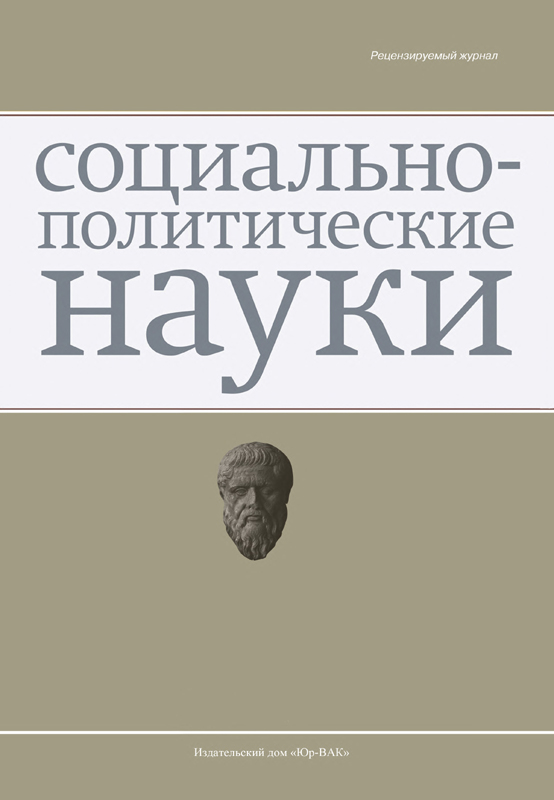The Defining Role of the GDR Heritage in German Identity
- 作者: Zavodnyuk P.D.1, Chulabi D.G.1, Bogdanova N.V.1
-
隶属关系:
- Peter the Great St. Petersburg Polytechnic University
- 期: 卷 13, 编号 3 (2023)
- 页面: 133-137
- 栏目: International Relations, Global and Regional Studies
- URL: https://journals.eco-vector.com/2223-0092/article/view/562956
- DOI: https://doi.org/10.33693/2223-0092-2023-13-3-133-137
- EDN: https://elibrary.ru/EBPAMG
- ID: 562956
如何引用文章
详细
Purpose of the study. This article analyzes the role of the legacy of the GDR in German self-consciousness after the reunification of Germany. The task of restoring German political identity and self-awareness of citizens was influenced, first of all, by the experience of the transformation of the former state of the GDR, which was expressed in the democratization of the territory through unification and reunification with West Germany in 1990. As a result of the conducted research, the authors came to the conclusion that the peculiarities of the self-identification of the East German self-consciousness may stem from a double historical experience, which is expressed in the experience and preserved memory of life with the actively implanted ideology of socialism and the continuing experience of living with the already united, but partly still unfamiliar FRG.
Conclusions. The authors were also able to identify two manifestations of the distinctive East German identity: the socialism of the “third way”, which appeared as a result of the peaceful transformations of 1989, as well as “Ostalgia”, which implies nostalgia for past life in East Germany. These two phenomena have the greatest potential to continue to remain as a legacy of the GDR and a visual demonstration of the continued isolation in the self-consciousness of the inhabitants of the Eastern part of modern united Germany.
全文:
作者简介
Polina Zavodnyuk
Peter the Great St. Petersburg Polytechnic University
编辑信件的主要联系方式.
Email: zavodnyuk478@gmail.com
student at the International Relations Higher School
俄罗斯联邦, St. PetersburgDaria Chulabi
Peter the Great St. Petersburg Polytechnic University
Email: dashajjchoulabi@gmail.com
student at the International Relations Higher School
俄罗斯联邦, St. PetersburgNadezhda Bogdanova
Peter the Great St. Petersburg Polytechnic University
Email: nvbogdanova.imop@mail.ru
SPIN 代码: 8701-6177
PhD in Pedagogy, associate professor at the International Relations Higher School
俄罗斯联邦, St. Petersburg参考
- Nefedov V.V. Humanitarian factor and culture in the GDR. Lecturer XXI Century. 2011. No. 3–2. Pp. 261–266. (In Rus.)
- Le Gloannec A.-M. On German identity. Daedalus 123. 1994. No. 1. Pp. 129–148.
- Volgina E.V. The problem of German unification in 1990. Forum of Young Scientists. 2018. No. 4 (20). Pp. 294–297. (In Rus.)
- Shanshieva L.N. From the GDR to the eastern federal lands of Germany: Features of economic and political transformation (1989–2019). In: Transformational revolutions in the countries of Central and South-Eastern Europe. To the 30th anniversary of the events of 1989–2019. St. Petersburg: Nestor-Istoria, 2021. Pp. 89–101.
- Khorolskaya M.V. Germany after unification: political problems and contradictions of the integration process: Dis. ... of Cand. Sci. (Polit.). Moscow, 2019. 22 p.
- Filitov A.M. The national question in post-war Germany. Lecturer XXI Century. 2016. No. 4–2. Pp. 428–440. (In Rus.)
- Rozhnov R.D. The problem of preserving the monumental heritage of the GDR after the unification of Germany. In: Language. Culture. Translation. Communication: Collection of scientific works. Issue 4. Moscow: KDU Publishing House LLC, 2023. Pp. 276–279.
- Bardin G.E. Influence of ostalgia and the existence of the GDR on the political and social agenda of the FRG. History and Modern Outlook. 2022. No. 2. Pp. 132–139. (In Rus.) URL: https://cyberleninka.ru/article/n/vliyanie-ostalgii-i-suschestvovaniya-gdr-na-politicheskuyu-i-sotsialnuyu-povestku-frg (data of accesses: 09.04.2023).
- Fedorova O.O. The phenomenon of German “ostalgia”. Young Scientist. 2010. No. 10. Pp.. 231–233. (In Rus.)
- Zhukova A.A., Pyatunina A.A. Ostalgia. Longing for the GDR. In: Professional and personal development of a student in a foreign-language educational environment: Collection of articles based on materials from student scientific seminars. Moscow, October 19–23, 2020. O.V. Pavlenko (ed.). Moscow: Russian State University for the Humanities, 2021. Pp. 397–409.
- Drobot N. Ostalgia as a special artistic direction in contem-porary fine arts. Philosophical Letters: Russian-European Dialogue. 2018. Vol. 1. No. 2. Pp. 112–133.
补充文件








